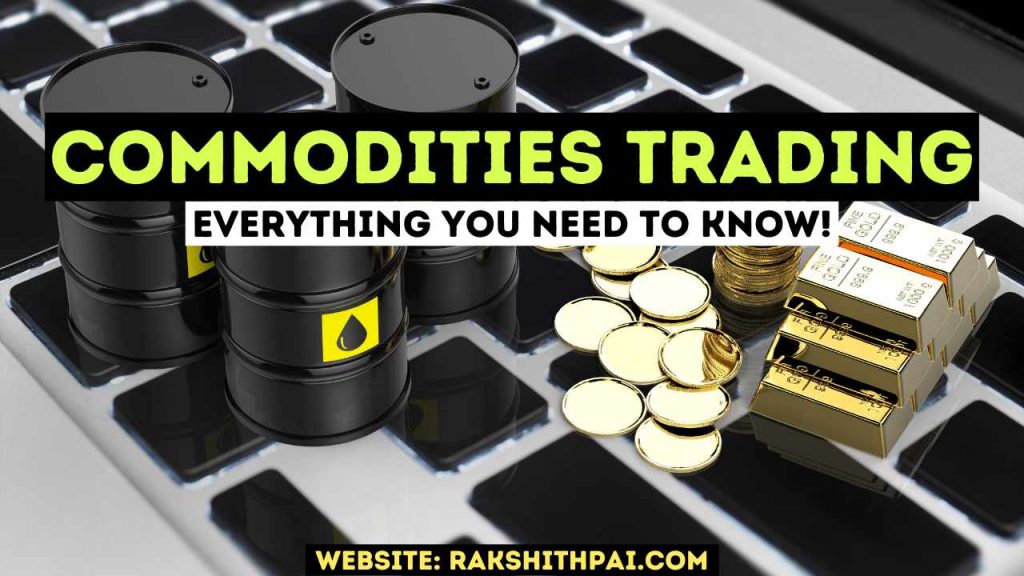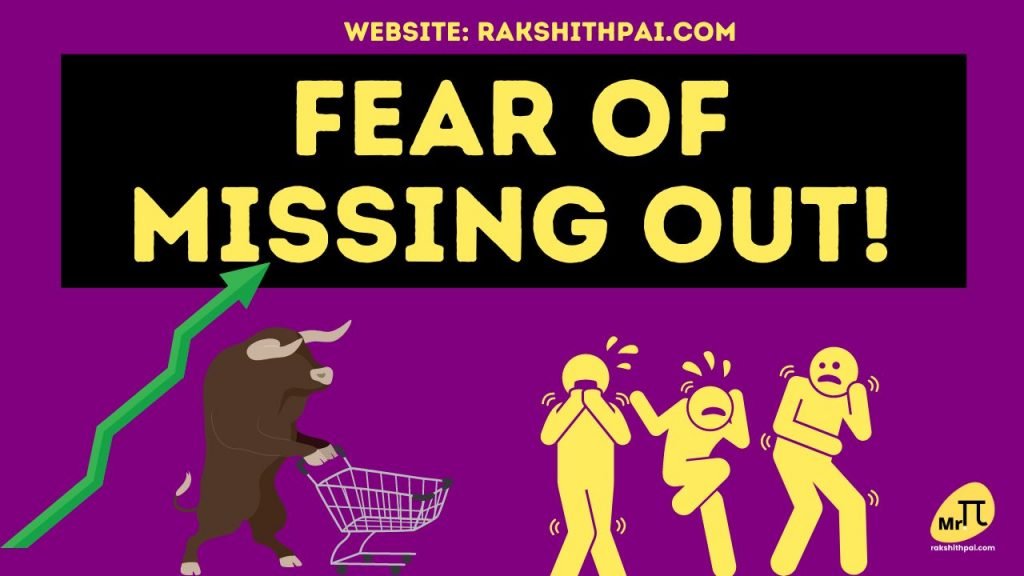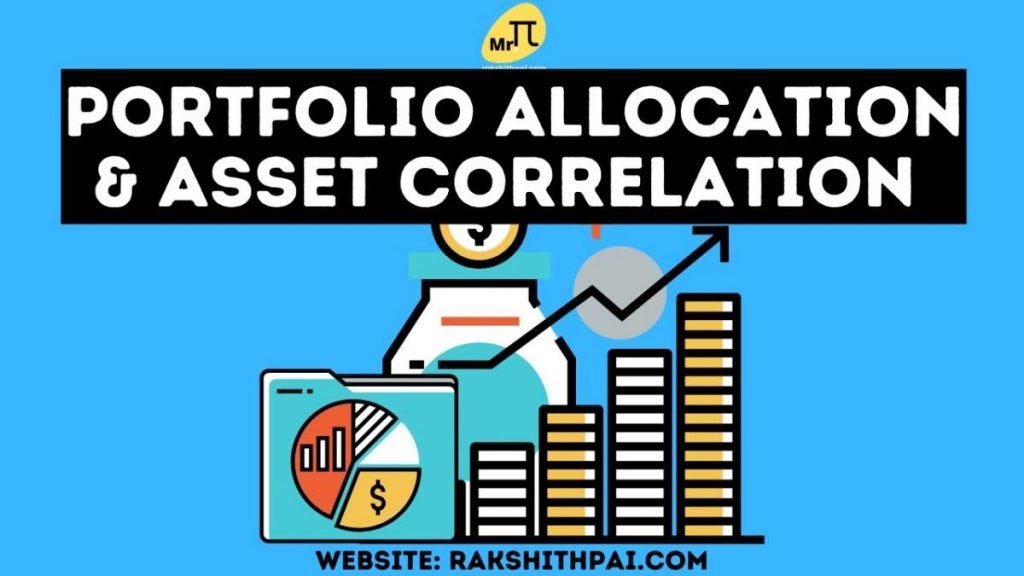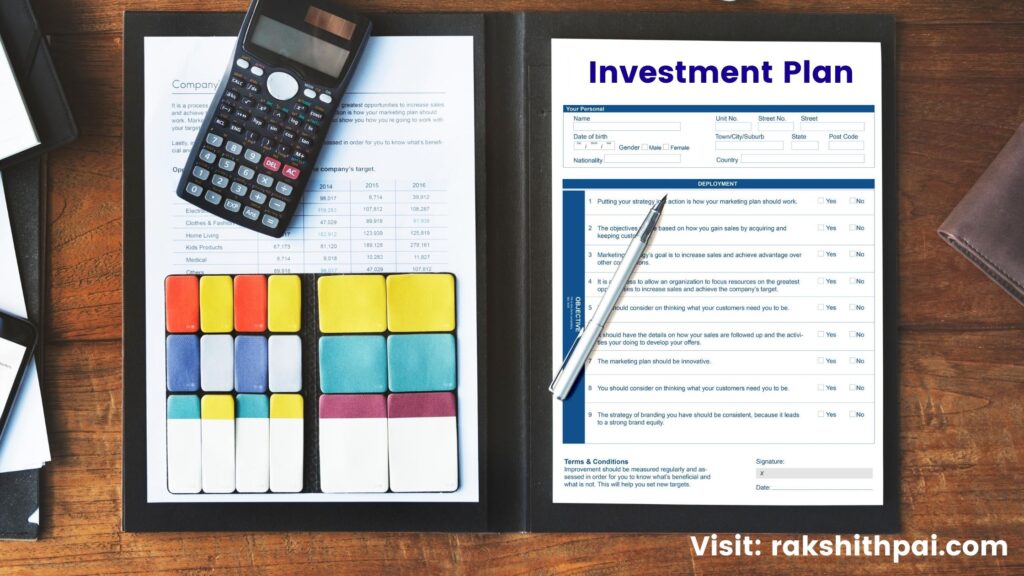Table of Contents
Introduction:
In India, commodity trading dates back hundreds of years. But as time went on, we started to be invaded, and changes to government rules made it hard to trade goods, even though it was common in other countries.
Simply put, commodities are agricultural or raw materials that can be purchased and sold. These are common commercial items that serve as the foundation of the world economy. The fact that a commodity’s quality varies slightly but is essentially the same across producers is a very significant attribute. Similar to bonds, these commodities are asset classes, and they are traded globally on certain exchanges in addition to being exchanged for money in the real world.
A significant part of most Indians’ daily lives involves commodities. A commodity is a basic good that is used in trade and can be exchanged for other items of the same kind. Commodities like cereals, gold, meat, oil, and natural gas are classic examples.
Commodities can be a significant tool for investors to diversify their holdings outside of traditional equities. Some investors also turn to commodities during times of market turbulence because commodity prices frequently move counter to those of stocks.
Trading in commodities used to be primarily the domain of professional traders and required significant amounts of time, money, and knowledge. There are more choices available today for trading commodities.
What is Commodity Trading?
Commodity trading has been present since the ages. In fact, commodity trading has been in effect before stocks or bonds. A key factor in the rise of many empires was their ability to build complex trade systems that made it easy to exchange goods.
Commodity trading is the buying and selling of commodities and the derived goods derived from them. Any raw material or basic agricultural product that may be purchased or sold is referred to as a commodity. Examples include wheat, gold, and crude oil, among many others. When you trade commodities, your asset portfolio can become more diversified.
If you want to learn more about commodity trading, start by brushing up on the fundamentals. Learn about the commodities market and how it operates.
Why Trade Commodities?
The fundamental laws of supply and demand, taken in their broadest meaning, govern the markets for commodities. Demand is affected by changes in supply, and prices are higher when supply is low. Therefore, any significant changes in a commodity’s supply, such as a widespread disease affecting cattle, might increase the typically steady and sustainable demand for livestock.
Prices may be impacted by both technological advancements and global economic development. For instance, the rise of China and India as major manufacturing nations (and the resulting higher demand for industrial metals) has resulted in a decrease in the number of metals, such as steel, that are available to the rest of the globe.
Types of Commodities:
There are Four (4) Major Commodities. As follows;
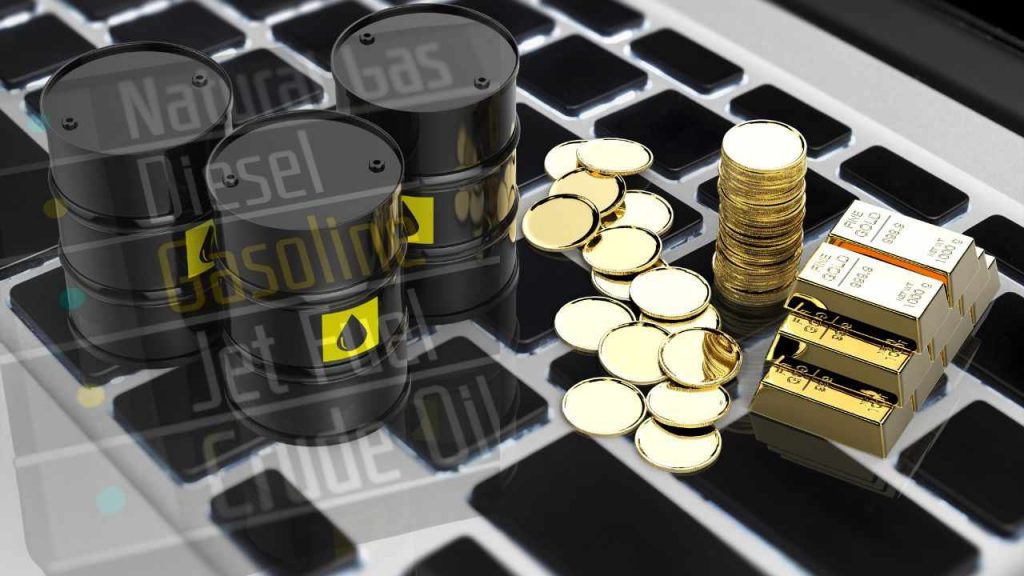
Agricultural Products
Corn, soybeans, wheat, rice, cocoa, coffee, cotton, and sugar are examples of agricultural products. During the summer or other times of weather-related transitions, grains can be quite volatile in the agricultural industry. Growing populations and fewer places to grow crops can make it possible for investors who are interested in the agricultural industry to make money from the rising prices of agricultural commodities.
Crops and cattle are considered agricultural commodities since they are raised and harvested for food and occasionally for fuel. Six categories have been established for the global trading of commodities. These categories fit several types of crops.
Agricultural goods can be traded physically or virtually. Trades can be made for either money or goods. Investors further segment trading according to the duration of the exchange.
Energy
Investors who are interested in the commodity market in the energy industry should also be aware of how recessions, any production changes mandated by OPEC, and new technological advancements in alternative sources of energy (wind power, solar energy, biofuel, etc.) that aim to substitute crude oil as a primary energy source can all have a significant impact on market prices for commodities in the energy sector.
Market flaws are to blame for some of the issues in the energy sector. It is important to consider if energy sector markets can be made to more closely resemble commodity markets, which are traditionally considered to be among the most efficient.
Fortunately, some fuels, such as coal and oil, may already be handled as commodities in many ways, and there is mounting evidence that gas and electricity may also be treated as commodities in the not-too-distant future. It appears to be conceivable (with some restrictions) to treat energy as a commodity. Therefore, it makes sense to think about transforming energy sector markets to resemble commodity markets in order to increase the sector’s efficiency.
Crude oil, heating oil, natural gas, and gasoline are all examples of energy commodities. Oil prices have traditionally increased due to changes in the global economy and decreased oil production from wells that have been in operation for a while. This is because the demand for goods related to energy has gone up while the supply of oil has gone down.
Metals
Metal commodities include copper, platinum, silver, and gold. Some investors may choose to invest in precious metals, especially gold because it is a dependable metal with actual, transferable value during times of market turmoil or bear markets. Investing in precious metals can also be a way to protect yourself from times of high inflation or when the value of a currency falls.
Rare metallic elements called precious metals are found naturally in the strata of the Earth and have high commercial worth. For a reason, precious metal commodities are rare; they serve as both investments and industrial components.
Metal materials are used by manufacturers to make a variety of products, including jewelry, dental equipment, and electronic components. Investors amass these metals’ coins and bars. Investors perceive metals to be more valuable than paper money due to the latter’s use of metals in the precious metals trade.
Livestock
Livestock animals are those that are raised to make meat, accessories like wool or worm castings, or other things that people eat like milk, cheese, honey, leather, etc.
Investment in commodity futures can be quite risky due to market volatility, especially for novice investors. If a trade goes against you, you could lose your initial deposit and more before you can get out of your position, which is a downside of the high-profit potential.
The majority of futures contracts allow for the purchase of options. A less risky way to enter the futures markets is through futures options. Putting a deposit down instead of paying for something entirely is one way to think about buying possibilities. When a contract has an option, you have the option to complete the transaction, but you are not required to. Consequently, you have limited your loss to the price of the option you bought if the price of the futures contract doesn’t move in the direction you expected.
Commodity Exchanges in India:
You must be familiar with trading on commodity exchanges in order to engage in the Indian commodity market. A commodity exchange is a controlled marketplace where commodities are traded. Traders have the option to deal in futures contracts rather than take physical delivery of commodities. A futures contract is a promise to buy or sell a certain amount of a good within a certain range of prices and by a certain date.
Here are the Top Exchanges Where Commodities can be Traded:
- Multi Commodity Exchange of India Ltd (MCX)
- National Multi Commodity Exchange (NMCE)
- National Commodity and Derivative Exchange (NCDEX)
- Indian Commodity Exchange (ICEX)
- Ace Derivatives Exchange (ACE)
- The Universal Commodity Exchange (UCX)
SEBI and MCX cooperate to regulate and facilitate commodity trading in the market. The MCX offers a trading platform for stocks. The Indian Commodity Futures Markets trade more than a hundred different commodities. Gold, crude oil, copper cathode, silver, zinc, nickel, natural gas, and farm commodities are a few of the most traded commodities.
Invest in Commodities via Equity Market:
Popular choices for investors looking to access a certain market include stocks of companies that are somewhat connected to a commodity. Investors with an interest in the oil sector could, for instance, purchase stock in oil drilling firms, refineries, tanker firms, or diversified oil firms. Investing in the shares of mining firms, smelters, refineries, or any company that deals with bullion are one option for people with an interest in the gold sector.
Generally speaking, stocks are believed to be less susceptible to violent price changes than futures contracts. It may be simpler to buy, hold, trade, and keep track of stocks. Additionally, investments can be restricted to a specific industry. Naturally, investors must conduct some due diligence to assist in guaranteeing that a specific business is both a sound investment and a commodity play.
What is Equity Fund Investing? Features, Benefits, Drawbacks, & Types Explained.
Options on equities are also available to investors. Options on stocks demand a lower investment than buying the stock outright, much like options on futures contracts. So, even if the most you have to lose when you invest in a stock option is the cost of the option, it’s possible that the price movement of a commodity won’t always match the price movement of a company’s stock that has something to do with your investment.
Trading is simpler since most investors already have a brokerage account, which is a benefit of buying stocks to enter the commodities market. Investors can easily access public information about a company’s financial position, and stocks are frequently very liquid.
As a means of getting access to the commodities market, investment in equities has significant relative drawbacks. Commodity prices never represent a pure investment in commodities. A stock’s price may also be affected by things about the company that has nothing to do with the value of the commodity the investor is trying to keep an eye on.
Benefits of Investing in Commodities:
Inflation Hedge
Commodities are regarded as a good hedge against inflation because their prices typically increase during times of high inflation. By doing this, purchasing power parity is preserved.
Hedge Against Volatile Market
Protect yourself from potential event risks. Supply disruptions brought on by a conflict, an economic crisis, or a natural disaster might cause commodity prices to rise. However, by carefully capitalizing on price fluctuations, commodity trading may help you prevent a loss.
For instance, a consumer could take a long hedge by purchasing a futures contract based on the current price of commodities in order to lock in the input price of raw material. A producer that wants to sell their product for a high price may decide to use a short hedge by selling a futures contract.
Diversification
Returns on commodities are not highly correlated with returns on other investments. Commodities can be used to diversify your investment portfolio as a separate asset class.
How to Diversify Your Stock Portfolio
Conclusion:
Commodity trading offers investors a variety of advantages. These advantages include improved return potential, diversification, and perhaps even an inflation hedge.
However, there are a few drawbacks as well, most of which are related to the security’s speculative and volatile nature. In these markets, there are more opportunities, but there are also more hazards.
It is possible for both new and seasoned traders to invest in financial products that allow them access to commodity prices. While commodities futures contracts offer the most straightforward way to follow market price changes, there are other less risky investment options that also offer enough opportunity for exposure to commodities.
Fundamentally speaking, commodities are widely recognized to be risky investment opportunities because they can be impacted by unpredictabilities like unexpected weather patterns, epidemics, and natural and man-made calamities that are difficult, if not impossible, to predict.
FAQs:
For More Information, Watch YouTube Video:
Disclaimer: All the information on this website is published in good faith and for general information purposes only.

